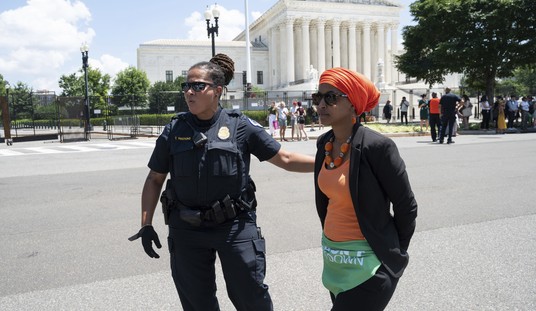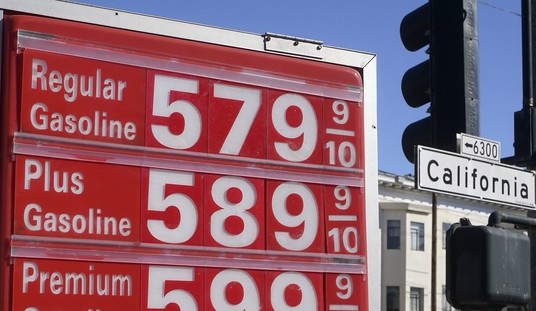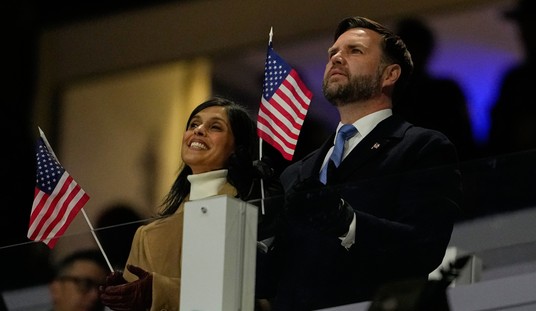By now, if you are the sort of person who reads RedState or other blogs regularly, you have heard the received wisdom regarding Donald Trump’s surge in the polls. Rougly 95% of pundits who have opined on the topic have taken it for granted that Trump’s surge in the polls is due to a surge of grassroots activists who are frustrated with the status quo in Washington and who are trying to send a message to the establishment about some issue or another (usually immigration is the preferred issue).
There’s one pretty good piece of evidence that suggests that this narrative is pretty much bunk. Let me paste here the graph of the RCP polling averages since Trump entered the race, and see if you can spot what it is:
See that? Trump’s rise in the polls has come almost exclusively at the expense of… Jeb Bush. All the other candidates who were competing for the title of being the grassroots challenger to Jeb Bush have either remained static, or have experienced nothing more significant than statistical noise in terms of their polling numbers. Perhaps most compelling is the fact that the guy who is assumed to be competing with Trump for this same pile of alleged very angry Tea Party voters – [mc_name name=’Sen. Ted Cruz (R-TX)’ chamber=’senate’ mcid=’C001098′ ] – has actually gone up in the polls since Trump’s entry into the race.
The majority of voters that Trump has siphoned away from other candidates, then, comes from what might well be called the “Establishment” pile, not the “Tea Party” pile.
I think, looking at these numbers, that we in pundit land have perhaps been largely buying our own press and fundamentally misunderstanding something we frankly should all know – that most voters don’t make decisions in the same way that we do. It is August of 2015. The first primary is not for several months. Most voters – even GOP Primary voters, are simply not paying attention to what is going on right now. As a consequence, perhaps the main driver of voter preference this early in the game – in spite of all the noise and furor to the controversy – is name ID.
Think about it. If you are a casual voter, prior to Trump’s entry into the race, if there was one Republican you had heard of, it was probably Jeb Bush, who has the virtue of being a former two-term President’s brother, plus he was on TV a lot during the Florida recount. I don’t think most of the voters who propelled Jeb Bush into the early lead had a clue what he stood for, he was just the only one of the names they were really familiar with.
However, Donald Trump is much, much more famous than Jeb Bush. He has been since even well before the Apprentice. For better or worse, “Donald Trump” has been a household name in this country since the 80s. And so, that pile of voters who basically says they are for the one candidate in the race they have actually heard of (and that pile of voters is still very large at this stage of the game) appears now to be in the Trump camp.
However, there is something that is creating the illusion that Donald Trump has been carried to the front of the pack on a wave of voter resentment/anger with the establishment, particularly over immigration – and that is the fact that the people for whom immigration is their most important issue have a vested interest in making it appear that their support is pushing Trump to the top, and those people are disproportionately likely to have positions of prominent media influence in the conservative movement.
Now, I am not talking about people who, like most Republican voters, are opposed to illegal immigration in principle. I am talking about people who think like this:
I don’t care if @realDonaldTrump wants to perform abortions in White House after this immigration policy paper. http://t.co/l7nq8gN7i5
— Ann Coulter (@AnnCoulter) August 16, 2015
These people are not numerous enough to even hold veto power in a GOP Presidential primary. Polling – even in the last couple of years when this issue has been magnified – has consistently shown that illegal immigration is the most important issue for somewhere between 6 and 12 per cent of GOP primary voters. In real terms, this voting bloc has failed to exercise veto power within the nomination process in both 2000 and 2008 (and, arguably, 2012), when open pro-amnesty candidates (George W. Bush and [mc_name name=’Sen. John McCain (R-AZ)’ chamber=’senate’ mcid=’M000303′ ]) won the nomination.
I think that this faction – which, again, is disproportionately represented in prominent media positions and in the online world which we inhabit – is taking credit for a wave they have not created. Definitely, they have senselessly jumped on board the wave and are making a lot of noise about being on board, which creates the illusion that they are driving it. But there isn’t really a lot of evidence at this point to suggest that this is the case, or that anything right now is driving Trump’s rise to the top other than the fact that he was the funny man on TV who said “you’re fired.”
Definitely, conservative anger at the establishment is driving a very vocal and prominent portion of Trump’s support, but I don’t see evidence that it is driving the bulk, or that engaging these particular aspects of his campaign (or co-opting them) is necessary to keep the majority of Trump voters in the fold if/when he collapses. Come December or January, if Trump still occupies this decision when ordinary, non-politically obsessed people are tuned in, then it might be time for that concern. But that time is probably not now.














Join the conversation as a VIP Member